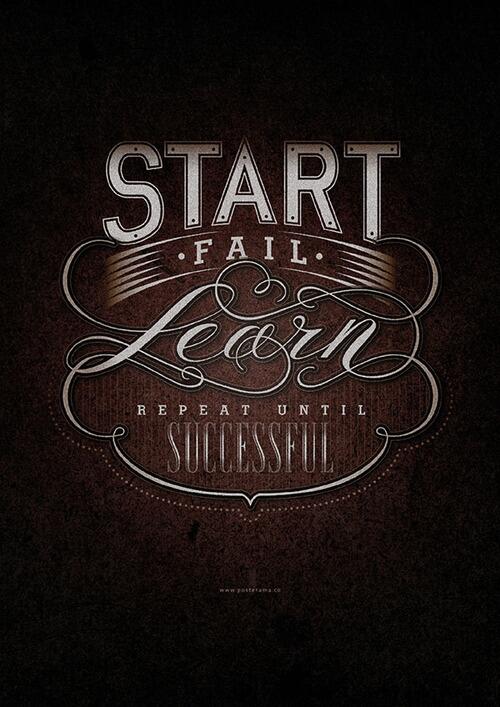
Titus Brown's Advice to Young Graduate Students - Blog
Cross-posted from Living in an Ivory Basement blog with permission from C. Titus Brown, a professor at Michigan State University. Titus told us that a sequel will appear in his blog this week, and it is even better. Also note that the following commentary is peer-reviewed and reviewer’s opinions are attached below.
-—————————-
**
Some advice to young graduate students
**
So, there this guy, Matt Welsh. And he left Harvard to go to Google. OK.
Now he’s baaaack, to point out that academia isn’t that rosy.
Yep. He’s not wrong.
A digression
Were I in a sarcastic mood, I would say something like “ohmigod, Matt Welsh is pointing out that academia is a social endeavor that is constrained by funds!!” and proceed to point out that you are, frankly, rather unworldly if you don’t understand that this is true of just about everything. In fact, unless you are not constrained by funds (because you are, say, independently wealthy), you should probably expect to have to engage in convincing other people that you are doing interesting work and they should fund you, not others. Cue politicking.
(Of course, grad students are almost by definition unworldly. But.)
Now, I did spend some time, unsuccessfully, in startupland. It turns out that I am uncomfortable bullshitting about commercial viability. I am far more comfortable in the academic world, where people will fund me based largely on whether or not I can convince them my work is interesting, not whether it will make money in the real world. And I’ve been more successful as an open source hacker and as a professor than as an entrepeneur – remember, kids, if you set the bar low enough, even you can be successful :).
So I think I know a little bit of where Matt Welsh is coming from, and I will close out this digression by pointing out that someone who has the skillz to become a tenured faculty member at Harvard is probably going to do well in many intellectual endeavors. Good for him, but take his (and my) advice with a grain of salt – credentials do open doors, for better or for worse, and advice from a former tenured prof at Harvard (him) or a Caltech PhD (me) may not translate. (This is obvious, right?)
On to the advice
If you are a gradate student,
and whether or not you are definitely planning to go into academia, or toying with going into biotech or a startup, or completely uncertain,
write a professional blog.
It’s good for research, good for thinking about stuff, and leads to professional advancement (that last one is a joke, ok?)
But seriously, it gives someone something to look at beyond your (no doubt very limited) CV/resume.
I have recently been engaged in cold-e-mailing industry people on behalf of friends-with-PhDs (FWPs), and invariably I wish to send out the blog, Twitter account, and github account for the student in question. Only rarely can I do this, because most grad students are stuck in an academic silo and only poke their head out when they realize they need to find a job. By then it’s too late.
Or, to put it another way: invariably, the advice I wish I had given these students two years ago is this: create an online presence for yourself well before you’re looking for a job.
Questions:
- What should I blog about?
Whatever you find interesting. My blog is mostly professional, with some satire and occasional sci-fi/fantasy references. The point is, it’s me.
- But, what should I say?
Something not obviously stupid, racist, or sexist. (Hopefully this, too is obvious, if only in hindsight.)
- What if no one reads my blog?
That’s OK. It can take a while even if you’re saying fantastically interesting things. The important thing is to have some sort of online presence showing that you are an awake, interested, and occasionally articulate person.
- But what if no one likes what I have to say?
What do you care what other people think? Seriously, see “articulate, awake” point above. That’s more important than being particularly likable.
- What if I suck at blogging?
Practice makes better, if not perfect. Improve thyself.
- Could I tweet instead of blog?
Absolutely. The important thing is to get out there. I think blogs are more permanent, though.
- Is it a competitive advantage if everyone is doing it?
Good question. Maybe not, but if you’re the only one not doing it, then
it’s definitely a disadvantage, eh?
Yep. Dear professor, at this point you need to look at yourself in the mirror and admit that there is more to life than a tenure track career, and moreover that you cannot guarantee your graduate students such a career. It would be a good idea to start helping them prepare for something else.
Besides, you can put their blogs down as evidence of your outreach component for your NSF grants. Yes, this works.
- Why should I listen to you? You’re not at Harvard!
Neither is Matt Welsh.
Concluding thoughts
My advice really boils down to one thing: build your online presence so that you can point prospective employers at it. This will help when employers want to know something about you; I think you’d be surprised at how difficult it is to tell good applicants from bad applicants via only a CV or interview, so every bit helps.
(Also, if you’re a programmer, I’d strongly suggest working on open source projects in your spare time. But not everyone’s a programmer.)
--titus
-———————————-
Reviewer’s comments
Titus’ commentary is so controversial, it went to 12 reviewers and all of them added their opinions in the comment section. See, that is one benefit of blogging. You can get your ideas and observations ‘peer reviewed’ very quickly. That does not necessary validate your blog post, but if you tell me that all papers published in peer reviewed journals accurately reflect truth, I have a bridge to sell you. Well, make that two :)
We will also add our ‘peer reviews’ here. Titus’ commentary contains so much common sense that one needs to have ‘permanent head damage’ to disagree with him. Blogging, if not anything else, helps one write his ideas coherently and communicate to a distant audience. That is an essential part of preparation for an academic career.
Secondly, if the purpose of ‘publish or perish’ is to gain visibility among peers, blogging can be seen as continuum of journal publication, conference publication and other forms of ‘publishing’. Believe it or not, this purpose of blogging is being recognized by not only young graduate students, but also a senior biology professor.
We wanted to comment on his ‘dos and don’ts’ of blogging, but seems like the discussion between Erich Schwarz and Titus Brown covered it nicely. The best strategy is to be truthful and honest to yourself rather than trying to avoid topics considered to be ‘stupid, racist, or sexist’, because, you never know, when the winds will blow in different direction. Erich Schwarz wrote -
Given all that, I think your statement about “obvious” sexism, etc., could stand some practical unpacking. What I think you’re really saying is, “Remember that, just as the Victorians 120 years ago had their mental boundaries for acceptable discussion, so do your putatively enlightened contemporaries now. So don’t write stuff that’ll infuriate them to no purpose. Pick your fights.”
The final benefit of blogging - ability to reach international audience. Researchers in Australia, Russia, Asia and Africa and other parts of the world are also doing top quality computational research. Traveling across the continent is expensive, but that should not limit exchange of information. When you think from that angle, above criticism about political bias becomes even more important. When speaking to US audience, it discrimination against Asians is not considered ‘racism’ (covered here and here), but I doubt that will fly with international audience.
-———————————
Edit.

Professor Dan Graur tweeted to us a set of articles that our readers will enjoy. They can all be read at this link and the citations are listed below.
Stephen C. Stearns. 1987. Some modest advice for graduate students. Bull. Brit. Ecol. Soc. 18: 82-89 (reprinted in Bull. Ecol. Soc. Amer. 68: 145-150).
Raymond B. Huey. 1987. Reply to Stearns: Some acynical advice for graduate students. Bull. Ecol. Soc. Amer. 68: 150-153.
Dan Binkley. 1988. Some advice for graduate advisors. Bull. Ecol. Soc. Amer. 69: 10-13.
Brian W. Witz, B. W. 1994. Some pragmatic advice to graduate students: A hybridization of Stearns, Huey, and Binkely. Bull. Ecol. Soc. Amer. 74: 176-177.
For impatient readers, he summarized four papers in one image -
